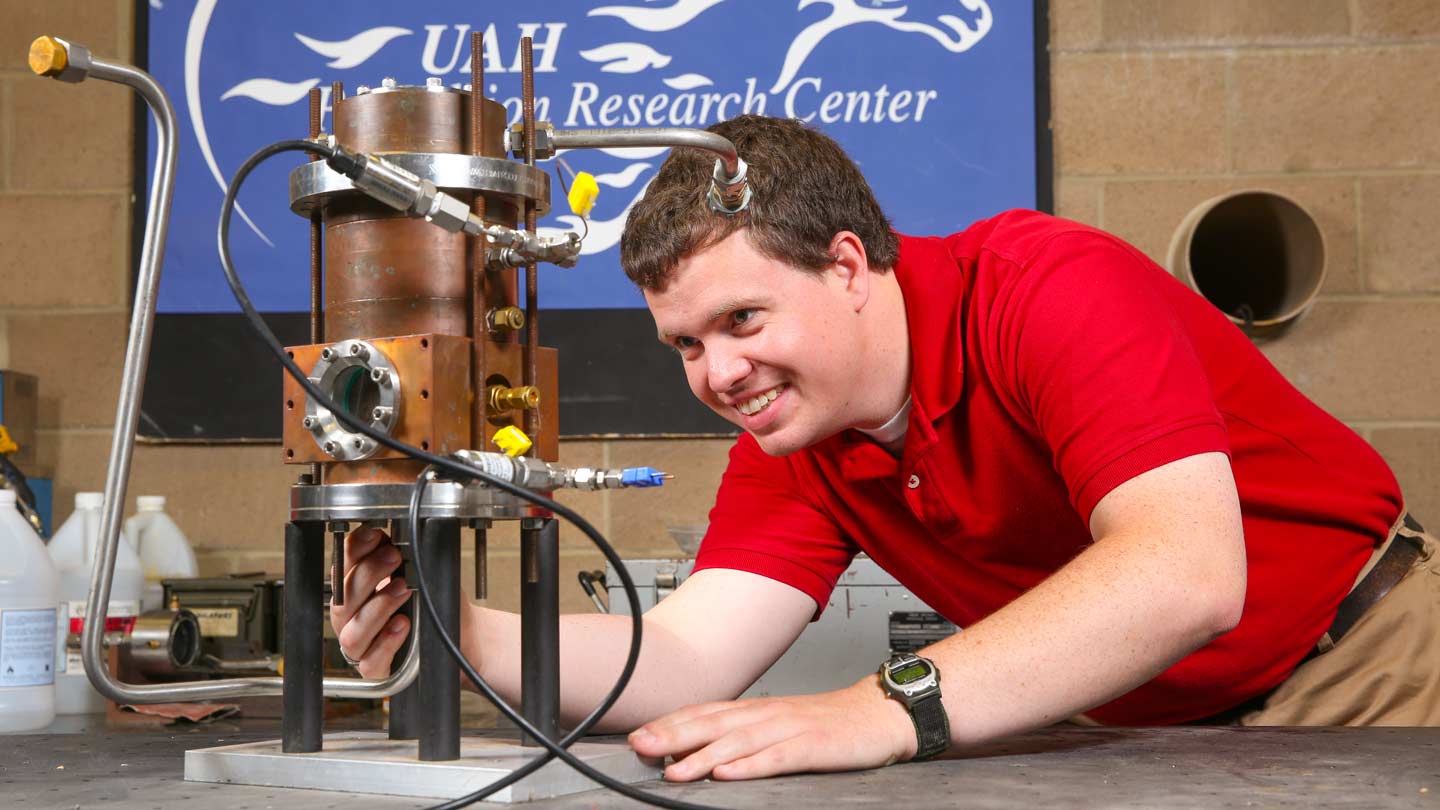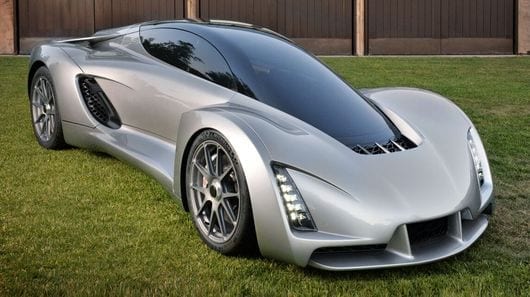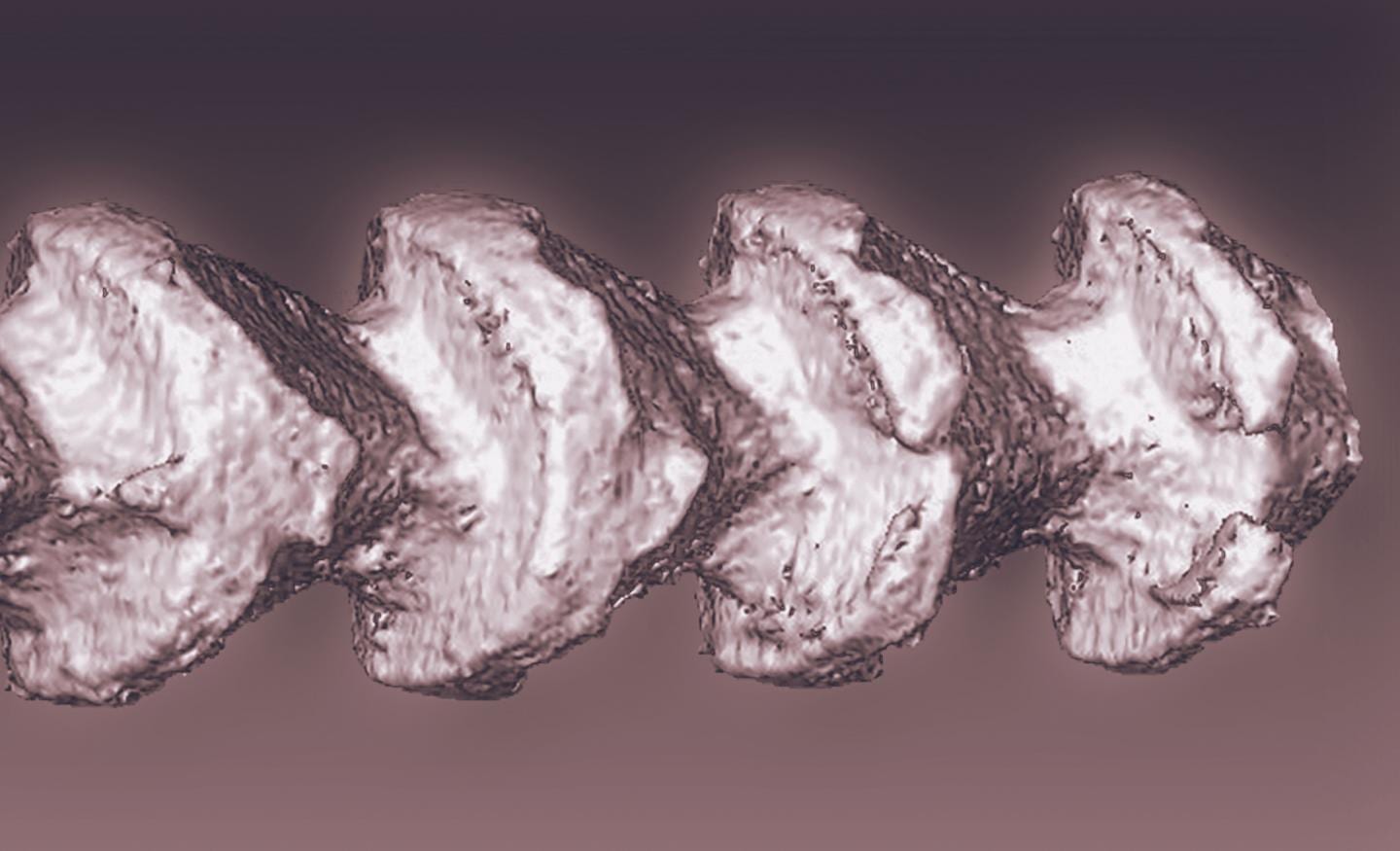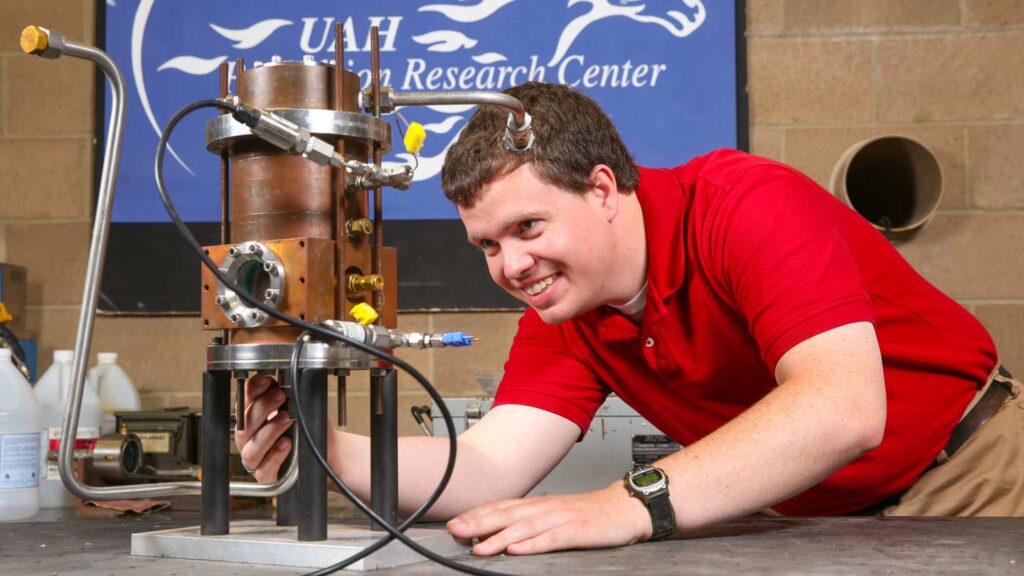
Hybrid rocket fuel research being done by a University of Alabama in Huntsville (UAH) mechanical engineering doctoral student could hasten the day when a simpler, safer, more economical rocket engine propels space missions.
At UAH’s Johnson Propulsion Center, Matthew Hitt has experimented with varying solid fuel grain sizes to see how they burn at different combustion chamber pressures and oxidizer flow rates in an effort to improve the performance of hybrid engines.
“This is another step in making hybrids – which are a safer alternative to either solid or liquid engines – more practical for actual application,” he says.
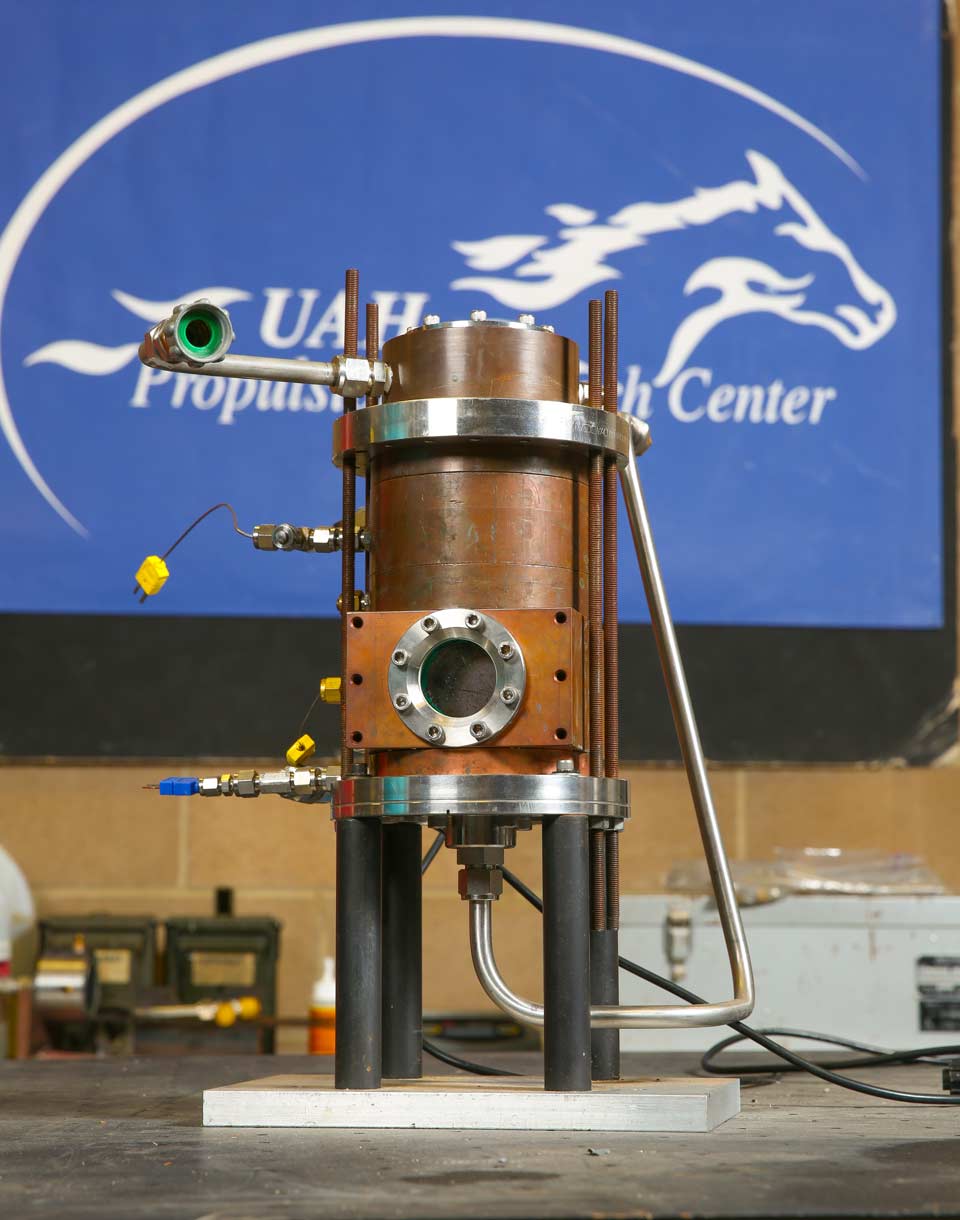
Advised by Dr. Robert Frederick, director of UAH’s Propulsion Research Center, Hitt attended the 2015 Combustion Summer School at Princeton University and has submitted a paper on his work to the American Institute of Aeronautics and Astronautics 2015 Propulsion and Energy Forum, set for July 27-29 in Orlando, Fla.
Improving the efficiency has to do with improving the fuel regression rate – a scientific way of saying you get the solid fuel to burn faster so it recedes back from the flame front at a faster rate.
“By increasing the fuel regression rate – which can lead to simpler designs – you are leaving less unburned fuel, so you are not carrying all this dead weight,” Hitt says.
Not having to carry fuel that won’t end up getting burned could reduce the weight of the rocket, allow for use of a smaller engine for the same flight result, or allow for a larger payload due to the weight savings.
Perfecting hybrid engines has been intriguing to rocket scientists globally because of the tantalizing benefits a hybrid engine offers over both conventional solid rocket engines and over liquid fuel/liquid oxidizer engines.
Rather than having a valuable human or satellite payload sitting atop two premixed solid propellants that could explode if accidentally ignited, in a hybrid engine one propellant is a solid and the other is a liquid.
“You’re not sitting on a bomb,” says Hitt. Having half the combustion equation as a solid beats a liquid/liquid combination in weight and cost savings, because half of the valves and associated equipment needed to pressurize and control liquids are eliminated. And unlike a solid fuel engine, a hybrid can be throttled and shut down.
Read more: UAH student’s research could hasten the dawn of hybrid rocket engines
The Latest on: Hybrid rocket engines
[google_news title=”” keyword=”hybrid rocket engines” num_posts=”10″ blurb_length=”0″ show_thumb=”left”]
via Google News
The Latest on: Hybrid rocket engines
- Elon Musk just set Wall Street up for one of his classic head fakeson April 27, 2024 at 5:48 am
Tesla is in trouble: sales are falling and competition from China is ramping up. It's clear Elon Musk can't fix the company, it needs a new CEO.
- Forget the Prius, these plug-in hybrids bring out your inner race car driveron April 26, 2024 at 4:59 pm
Under the hood of the car lies a plug-in hybrid powertrain consisting of a four liter twin-turbo V8 engine mated to an 189 horsepower electric motor. Together, the Urus makes 789 horsepower and 590 ...
- The Factory Turbocharged Car With The Most Horsepower In 2024on April 24, 2024 at 6:00 pm
From the dreams of one speed-focused man in Texas, there exists a reality of the most powerful factory turbocharged car in 2024, the Hennessey Venom F5. Standing as the peak of raw power, this machine ...
- 2025 BMW 4 Series Gran Coupe and i4 Updated Inside and Outon April 24, 2024 at 7:28 am
BMW is tweaking the 4 Series Gran Coupe and i4 for 2025 with updated infotainment tech, new head- and taillights, and more.
- Tesla’s Profit Fell 55%, Adding to Concerns About Its Strategyon April 23, 2024 at 3:48 pm
The first-quarter results are likely to fuel worries that competitors will continue grabbing a bigger slice of a market dealing with slowing electric car sales.
- Mercedes-AMG’s latest GT rockets 0-60mph in 2.7 secondson April 23, 2024 at 7:51 am
Mercedes-AMG's new flagship, the GT 63 S E Performance, goes 0-60 mph in 2.7 seconds, the fastest sprint ever for an AMG series model.
- Columbia Roiled By Antisemitismon April 23, 2024 at 4:19 am
On the eve of Passover, Rabbi Elie Buechler, the director of the Orthodox Union-Jewish Learning Initiative at Columbia University, shared a warning with hundreds of Jewish students at the elite ...
- 2024 Toyota Corolla Cross XSE Hybrid reviewon April 21, 2024 at 10:24 am
Toyota hasn’t messed with the Corolla, which is still a fine sedan for a young family. However, its marketing and sales folks realized the market is fast shifting to crossovers. So, guess what? Now, ...
- 2025 Mercedes-AMG GT 63 S E Performance: AMG’s Quickest Hybrid Yeton April 20, 2024 at 5:00 am
Mercedes-AMG GT 63S E Performance, debuting today at Shanghai’s Chinese Grand Prix, is the fastest series-production AMG ever.
- Rocket Report: Starship could save Mars Sample Return; BE-4s for second Vulcanon April 19, 2024 at 4:01 am
Gilmour Space has raised its privately developed Eris rocket vertical on a launch pad in North Queensland for the first time, the Australian Broadcasting Corporation reports. This milestone marks the ...
via Bing News







